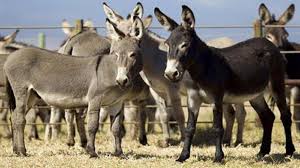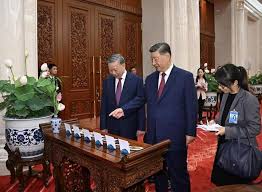Women in UK military who report assaults being ostracised, study says

London: Women in the British military who report sexual assaults are being ostracised and punished for breaching minor rules, research shows.
The forces’ “misogynistic and toxic” culture of “laddish” behaviour shapes the way it deals with and understands sexual assaults, according to the study, which is published in the Royal United Services Institution Journal.
Its lead author, Dr Harriet Gray, of York University’s politics and international relations department, said nearly all of the women interviewed described being punished for breaking rules rather than supported when they reported incidents, which left them feeling betrayed.
The research comes after the Guardian revealed that 60 senior women in the Ministry of Defence had written to the permanent secretary last month to detail a “hostile” and “toxic” culture at the department and alleged sexual assault, harassment and abuse by male colleagues.
Emma Norton, the director of the Centre for Military Justice, said: “Our research demonstrates what any woman who has been through this appalling experience knows all too well – after reporting rape, she faces humiliation, disbelief, blame, shame and ostracisation.
“This harm is being caused by the very institution to which she had devoted her career and her life, an institution that too often appears more concerned with protecting its own reputation than in doing what is right.
“It is the most profound, life-changing form of institutional betrayal.”
One former RAF technician who took part in the research said that after she reported that she had been sexually assaulted by a colleague in her sleep, her commanding officer’s first reaction was to reprimand her for having stayed out drinking.
She told the Guardian: “[The response] was ‘well, why did you stay out? It wasn’t ‘how are you?’. He was just really angry with me.”
She said that, when she reported what had happened, “their priority was initially to hide it”. She won an employment tribunal against the MoD last year after it found that she had been subjected to sexual harassment and that there was “no factual dispute” that an assault had taken place in 2018.
The woman, who has now left the RAF, said she had loved her job and felt she was punished for seeking help.
She described a culture of misogyny throughout her career. In addition to the sexual assault reported in 2018, she said earlier incidents included being filmed asleep while a colleague put his naked testicles on her face, and that during an excursion abroad she had her bikini bottoms pulled down by a colleague while taking a photo for a tourist.
Gray said the military had “made some impressive-sounding policy changes, which are valuable,” but “unless you target the culture then the policies about what will happen after a conviction are irrelevant, when you consider how hard it is to get a conviction and what the backlash can be to reporting in the first place”.
She added: “I think that this [laddish] culture is at its roots misogynistic and toxic and if that’s allowed to remain then I don’t think you can solve this issue.”
The research is the first peer-reviewed, empirical study to explore experiences of sexual assault in the UK armed forces, using in-depth interviews with six servicewomen who were subject to sexual violence by male colleagues.
Victims told researchers that they felt “responses to their reports were primarily oriented around protecting the organisation, its interests and its normal ways of functioning over and above their needs as survivors”. They described an “overriding concern with keeping negative stories out of the media to protect the military’s reputation”.
One woman said that after her report of rape, her chain of command “ordered that potential evidence be deleted from mobile phones, because of a concern that photos or videos would end up on social media”. She said it was “basically covering up” because “they couldn’t have anything that would expose them to anything”.
Another interviewee told researchers that the camp turned into a “hostile environment” after she reported her assault and colleagues said they did not believe her and refused to work with her. She was told by her commander that she was becoming an “inconvenience” because of the bad atmosphere it was creating.
She said: “If you spoke out, you [were] ostracised,” and she described a friend who had spoken up for her on a social media group used by the unit being reprimanded by her seniors for “affecting the dynamics”.
An MoD spokesperson said: “Sexual offences and unacceptable sexual behaviour have no place in the armed forces and we are committed to stamping them out. All allegations are taken extremely seriously and crimes are investigated by the service police.
“We have set up an independent defence serious crime unit, created a victim witness care unit and strengthened our ability to discharge from service anyone who has committed an offence or engages in unacceptable sexual behaviour.”





